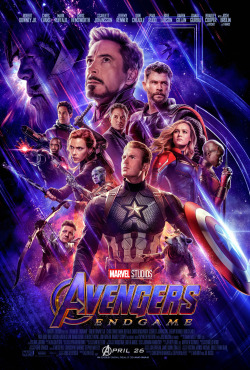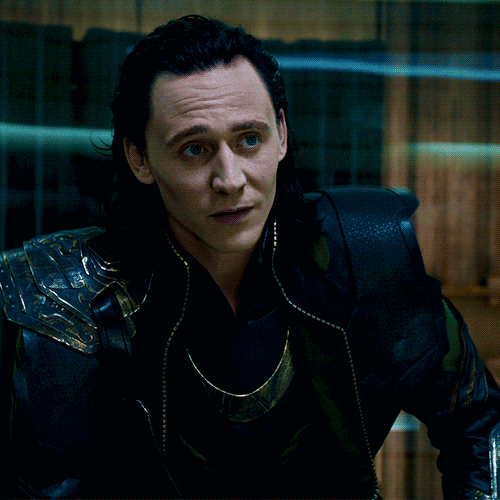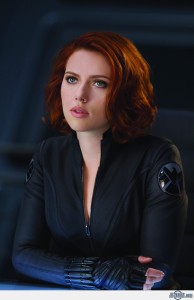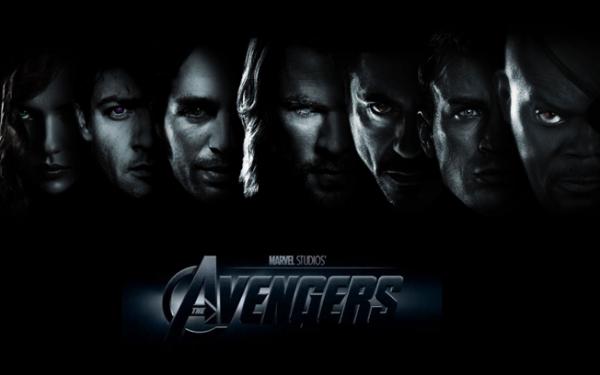
“It’s the end of the world as we know it, and I feel fine…”
How do you say goodbye to 1/3rd of your life?
Really. I’ve been asking myself that in the weeks leading up to Avengers: Endgame.
And honestly, I don’t have an answer to that question, because it’s kind of impossible.
So here’s the thing: I read comic books as a kid when I had access to them, but I was never someone who had a massive collection of Marvel comics. I had some of them, so growing up I knew who the Avengers were, but not to any significant degree other than names, powers, and aliases. Like a lot of people, Iron Man was the first time I took notice of Marvel heroes who weren’t Spider-Man or the X-Men, and that movie opened an entire avenue that I don’t think any of us thought would be possible someday.
I had already been fully on board when the announcement that the incredible Robert Downey Jr. would be starring as Tony Stark, and to this day, that is still one of the all-time most perfect casting choices. Fans were dancing in the streets when we heard it, because we all knew if nothing else, Tony Stark would get a first-rate performance. RDJ had gotten himself back on track after his troubled past, and we were so ready to see him return to his former glory.
And he did just that.
To date, I still rank Iron Man in my personal top 10 MCU films, for so many reasons, but for the sake of this retrospective post, let me sum it up by saying it is so fitting that we began this 11-year journey with RDJ and with Tony Stark. Iron Man is about heart. Literally and figuratively. By being put in the danger he found himself in, Tony inadvertently grew a heart and became the man who so many of us will Stan until the end of time. He had nothing but his wits and a faithful friend at his side, and when he was told to bow to his enemies, he instead defied them and saved himself. In doing so, it kicked off the first domino for the Marvel Cinematic Universe, and even though it had a steady stream of interest, everything changed when at long last our beloved heroes teamed up for The Avengers.
The Avengers, whether you like it or not, changed history.
There had never been an attempt to combine solo stories of heroes on this kind of scale before, and that was when people realized that this wasn’t just a passing fancy. The Avengers broke box office records for a few reasons, but one that I am quite fond of is the fact that word of mouth was so powerful. All the hardcore fans saw it and sang its praises, but the great thing about the Avengers is it was written in such a way that even if you had missed the previous films, you could still enjoy it, and people did. The non-fans took notice of that killer opening weekend and heard the rave reviews, got curious, and saw it. And then they went home and told everyone how phenomenal it was, and then the process repeated itself. What I have always loved about the Avengers, and what it began when it came out, was its inclusiveness. It had something for everyone in it. And not only was it taken seriously, it was given an excellent script, fantastic visuals, and a kick ass soundtrack that still gets us hype as hell even 7 years later. Most of us fans used to fantasize about a team up movie, never thinking it would be possible considering all the legal and copyright hoops studios had to jump through, but then the day arrived and it was every single thing we dreamt it would be.
What made the Avengers so prolific was the ability to take that many characters and tie them to each other, giving each one time to shine in an extremely well-paced story. Ensemble films are everywhere, but this was the first time that a major film studio took individual heroes from their films and had them interact, and then sent them back out on their own, with the promise of calling them back again. What continues to impress me with the Avengers is that everyone had a stake in the game, and everyone contributed something. (Note: people shit on Hawkeye constantly as the “useless” team member, but I invite you to remember that Hawkeye nearly killed the entire team when he attacked the heli-carrier, so honestly, the haters can shut the hell up.) Too often movies have a group of characters who are supposed to have specific skillsets or traits useful to either the plot or the story, but really, there’s no reason for them to be there. (*cough* Fast and the Furious *cough* *coughs harder* the Justice League movie *coughs harder*) Here, you understood everything, and it all had its own harmony to it. A great story is one in which everyone has both inner and outer conflict, and while they butt heads, they’re together to reach a collective goal, no matter what the cost.
And frankly, The Avengers is when shit got real for everyone.
In my lifetime, I’ve only seen a handful of films more than twice in theaters. I saw The Avengers in theaters four times. The only other viewing at the time that came close was the Dark Knight, which I also saw four times. That is just an idea of how damn much I enjoyed that film, and what a legacy I think it left in its wake. Even back with 2012 ticket prices, I had such a great time that I happily bought multiple showings just to see it again.
So after 2012 when we all found out it was possible for something this awesome to exist, Marvel figured out that the winning formula was not in some of the paltry tricks that Hollywood likes to sell us, but in having a strong story with its roots in the proper place—the comics—and in trusting the vision of their actors and directors. In 2014, we were blessed with Captain America: The Winter Soldier, which is arguably the best Marvel movie period, to say nothing of one of the best comic book movies of all time. Winter Soldier is one of the highest praised MCU films for a tight spy-espionage story, interesting characters, a razor-sharp script, and some of the most stunning fight choreography in film history. It blew our minds that anything could be as good, or maybe even better than The Avengers, and it didn’t rely on simply having an orgy of superheroes. It was just a damn good experience in every aspect.
Then, after the MCU films had a few unsteady steps like Age of Ultron (which I still think is great, but is a troubled film) and Doctor Strange, they surprised us by going all in with two films that arguably innovated their franchise yet again: Black Panther and Thor: Ragnarok.
Black Panther told the world what us nerds already knew: that black people are just as interested in science-fiction and comic books as other people, and they came out in force. It was the most liberating experience to see a mature, well-written, well-acted, flat-out gorgeous big budget film that was 90% black both in front of and behind the camera. Ryan Coogler went out of his way to create an unforgettable experience that delighted and amazed everyone in a way most people had never considered. Black creatives have been here forever, but this was one of the first times we were able to see it on a massive scale and for a massive audience. Finally, we were given a voice and got to tell an excellent story that wasn’t watered down or apologetic or riddled with stereotypes. And with it breaking box office records, it became indisputable proof that diversity does not lose money and it is not only welcomed, but encouraged by the world, and I cannot thank the MCU enough for that fact alone.
Thor: Ragnarok is living proof that you can dust off something that was fairly good, but just needed a new angle and make something absolutely outstanding. Remember how I said I saw The Avengers in theaters four times? Yep. Did the same for Thor: Ragnarok. And don’t ask me how many times I have watched it since I got it for home release. It’s got to be 50 times by now, honestly.
Ragnarok showed that sometimes a great, radical idea is exactly what you need, and that if you put your trust in the right creative mind, you can take a middle-grade character and elevate him to a level no one thought possible. Truth be told, I liked both of the previous Thor movies (and again, the haters can just exit stage left, because The Dark World is nowhere near as bad as people keep saying it is) but this pumped entirely new blood into Thor’s veins as well as our own. One of my favorite things about Ragnarok is that it shows the trust between the director, the cast, and Marvel Studios. It took serious balls to pitch some of the things that went down in Ragnarok, but thanks to the miles and miles of talent from the movie’s cast and crew, it became a top tier MCU film, and can easily stand next to not only some of the best comic book movies, but some of the best comedies.
And then, while we were still reeling from the amazing combination of Ragnarok and Black Panther…along came Infinity War.
Infinity War once again broke the mold.
I’m fairly certain almost none of you read my college essay-length review of Infinity War, but the main gist of it is that there is no other film like Infinity War. Period. And I don’t mean that in some kiss-ass way because I happen to be a fan of the MCU. No, really, I mean it as a writer and as a creator and as a moviegoer in general. I’ve watched hundreds of films in my 30 years of living, and I cannot name another movie that had an impact on me the way that Infinity War did, and what’s more is that I am not alone.
Infinity War, for me, stands on its own category simply for the emotional depth that it was able to achieve. It’s not just the suckerpunch ending—it’s that the film is not only funny and action packed, but it’s a story where it took one of the largest cast of characters in film history and still managed to make a story for each of them, and gave each of them stakes and a role to serve. Think about that. I mean, do you understand how much talent it took in order for the sheer number of characters to not only interact, but contribute to the overall plot and story in a manner that was personal to them? In case you forgot, count them up: the five of the six original Avengers (Steve, Tony, Bruce, Nat, Thor), the expanded team (Sam, Rhodey, Vision, Wanda, T’Challa, Okoye, Shuri, Bucky, Parker), and then the Guardians (Peter, Gamora, Rocket, Drax, Groot, Nebula, Mantis), and then the villain Thanos, not to mention introducing a few new characters like the Nidavellir Dwarf or the Children of Thanos. Yet they were able to combine these 22 people into one story that actually made sense and was excellently paced as it rotated between the POVs of what each of them were doing as the events of Thanos’ terrible mission unfolded. I just don’t think people sit down and take the time to appreciate that sort of coordination. Not only did you have 22 people being relevant and involved with a story, but you pulled former motivations and personal relationships into it all to a point where there was not a dry eye in the house at the end.
What I remember so clearly about the premiere of Infinity War was the universal reactions from the audience, both hardcore fans and regular viewers alike. Sometimes in movies, you get annoyances like people or kids talking, people checking their cell phones, etc.
Not so with Infinity War.
Everyone was absolutely enraptured.
As far as I can recall, that’s only ever happened three other times at a movie premiere for me: The Dark Knight and Interstellar (Note: that makes total sense to me, because Christopher Nolan is an absolute master of storytelling and his suspenseful scenes leave you clutching your arm rests), and I Am Legend.
And that ending to Infinity War?
Jesus Christ.
The absolute stunned silence when those credits rolled after our heroes lost the war was devastating.
All I could hear was the sound of people everywhere crying, myself included.
It’s not about movies that make you cry. Plenty of movies have the ability to do that.
It’s about the fact that this same phenomenon happened in damn near every theater in every state and every country during their premieres.
We’re talking a universal experience.
How fucking cool is that?
Am I alone in thinking that it’s so amazing that they could dig so deep into our hearts that all of us from all walks of life sat there with tears streaming down our faces, feeling like Thanos personally walked up and walloped us in the gut with that gauntlet? No matter who you are, you probably have at least one favorite MCU character, and what’s so prolific about Infinity War is that in the end, it’s about every character’s nightmare coming true.
Think about it.
Steve’s fear was of losing his friends, especially his best friends Bucky and Sam.
Peter’s fear was of losing Gamora.
Tony’s fear was of losing the war and being a survivor of the devastation.
Gamora’s fear was of being helpless in Thanos’ control again.
Rocket’s fear was of losing his family.
Wanda’s fear was of having to kill the love of her life in order to save everyone.
Vision’s fear was of his possession of the Mind Stone allowing Thanos’ mission to be completed.
Thor’s fear was of being unable to avenge his brother, his best friend, and all of Asgard.
I could go on and on like that, but the sheer weight of this disaster brought all of us to our knees at once, and as much as it hurts me (ask my friends; I was sobbing so hard I had to put my hand over my mouth to keep from disturbing everyone else) I have to commend them for being able to make us feel something so powerful for what are fictional characters. It’s an amazing achievement that it felt as if we were the ones losing loved ones when we watched Infinity War. It’s one of the reasons we go to the movies in the first place—to feel something and experience something we never have before, and I really think that is what Infinity War delivered. It was an entirely unique movie-going experience that still reverberates with us a year later.
And it’s why Avengers: Endgame might be yet another first for us.
Many of us have experienced something similar with the end of a long running TV show. I personally am old enough to have seen the live endings to Will & Grace, Castle, Friends, Frasier, 30 Rock, The Sopranos, and various cartoons. I believe the closest equivalent in the film world might be the Star Trek movies, but even then, it’s different because they have always been an ensemble cast and don’t have individual-centric stories. It’s going to be the ending of an 11 year journey, and even though we know several heroes are going to survive and continue on with solo sequels (Black Panther, Spider-Man, Captain Marvel, Doctor Strange, Ant Man, Guardians of the Galaxy, and Black Widow are confirmed) or with the upcoming mini-series on the Disney Plus channel (Falcon and Winter Soldier, Loki, and Vision & Wanda are confirmed), this is still possibly the ending of the original Avengers lineup. All we know for sure is that Endgame is Robert Downey Jr and Chris Evans’ final solo performances of Tony Stark and Steve Rogers. If we’re really fortunate, their stories end in such a way that we could see future cameos from them (ex. Steve Rogers in the Spider-Man: Homecoming end credits) but for all we know, it’s the end for them and we have to say goodbye.
And I’m not sure that I know how.
The closest equivalent for me is Logan (2017). Goodness gracious. Talk about gross sobbing. I was an absolute wreck saying goodbye to Hugh Jackman in his final scene of Logan. However, now that it’s been two years, and Hugh Jackman is running around still being utterly adorable and fun in every way, I have been able to come to grips without my grumpy Canadian badass. Still, though, Endgame is going to be rough for me because while I adore Logan to no end, I wasn’t a fan to the degree that I would actively participate in fandom things related to him, like say fanfiction or Tumblr.
And that’s not the case with the Avengers.
I’m a straight up MCU fangirl. I reblog photosets and engage in silly theories and headcanons and read and write fics on a weekly basis. The Avengers are an active part of my life because watching the MCU films is a full blown hobby of mine. I have never been asked to let go of something that is a part of my daily life, not since Castle at least, and even then Castle ended so badly that I had let go of the show two whole seasons before it actually ended.
So that’s the hardest part of all with Endgame on its way.
How do you say goodbye?
I don’t know. I just don’t bloody know.
No matter what ending they choose for my Avengers, I’m going to be in tears, but I hope and pray that the Russos continue with their trend of being excellent storytellers and that they give us a worthy ending for those of the Avengers who will not continue past Endgame. I cannot control what happens and I will either make peace with it or reject it for a headcanon so that I can get to sleep at night (here’s looking at you, Loki; you’re still alive in my mind, you beautiful trashlord). However, I do feel encouraged to believe they will give them the endings they deserved based on what Chris Evans has been allowed to say about his final day of filming. Chris Evans basically is Captain America. He is Steve Rogers. And if he felt that Steve was given a great finish to his run in the MCU, then it’s possible I will be able to let him go to a certain degree and appreciate the time and care the character has been given since his introduction.
It’s such a bittersweet place to be, isn’t it?
If nothing else, I just want to thank the original Avengers actors for portraying such vibrant, fun, deep, relatable characters for a whole decade. I mean, that’s so much dedication, and all of them went above and beyond trying to do the characters justice. People can debate left and right about the accuracy or the mythos, but in the end, what I love about the MCU is that for the most part, every last one of them gives a shit. It should be a no brainer, but it isn’t in Hollywood. I can name so many movies or franchises that shit something out just to make money and have no passion or interest in the product. The people who work on these films have given them their all and they have left behind something no one can touch for as long as time exists.
In the end, I suppose that old saying is the best way to try and prepare for the end: “Don’t cry because it’s over; smile because it happened.”
You’re damn right I’m gonna cry, but my hope for Endgame is that I’ll be smiling through my tears.
See you guys on the other side.
Love always,
Kyoko


